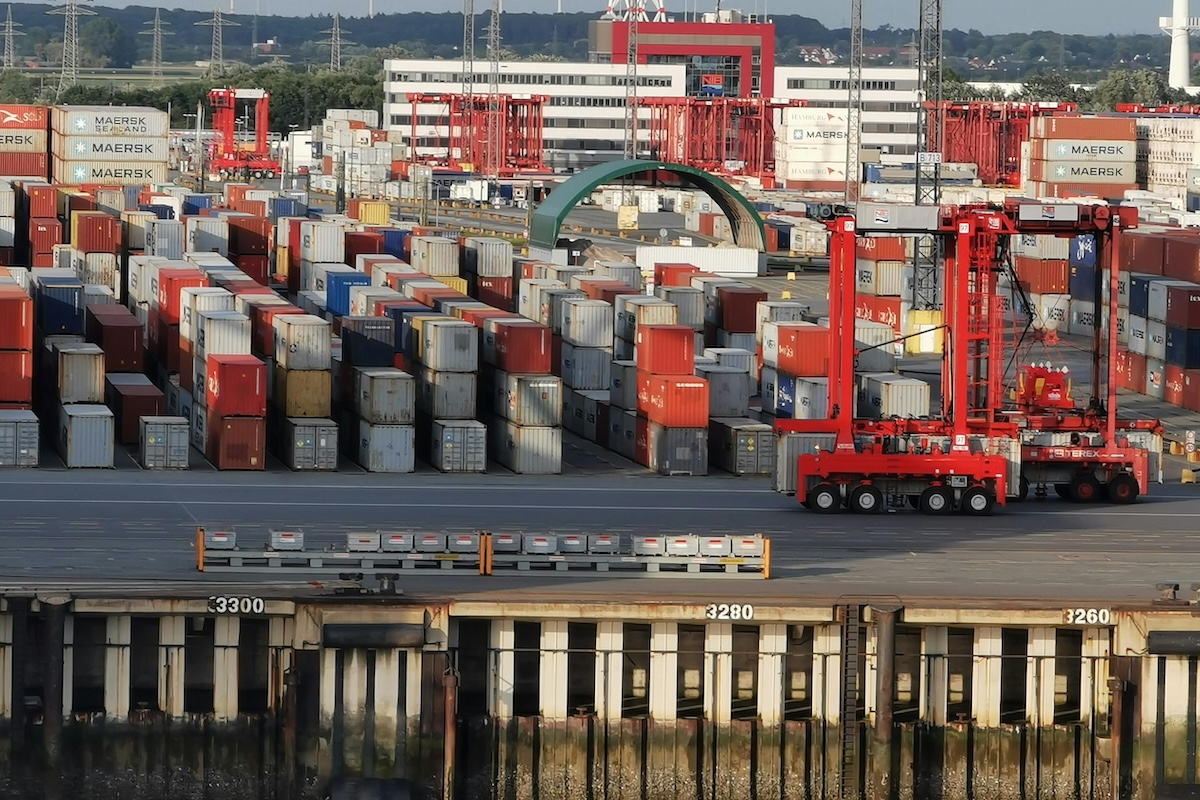3 Tips for Export Control Audits

Article Summary
Export control audits are evaluations to ensure businesses comply with trade regulations and export laws.
They help businesses avoid legal penalties, protect their reputation, and ensure compliance with international trade laws.
Maintain accurate and organized records. Conduct regular internal compliance reviews. Stay updated on changing trade regulations.
Industries like manufacturing, technology, defense, and pharmaceuticals are heavily impacted due to strict trade regulations.
Consequences include fines, loss of export privileges, and reputational damage.
Conducting an export control audit is essential to any successful export compliance program. It is critical that all companies subject to U.S. export control laws maintain export compliance programs and routinely audit their effectiveness and efficiency. In recent settlement agreements, U.S. agencies have ordered companies to independently audit their export control compliance systems. Not only can auditing your company at regular intervals save you a visit from investigators but an audit can highlight better ways to integrate compliance standard operating procedures with other business processes within your organization.
In our experience, export compliance audits involve three phases: the preparation phase; the on-site visit; and the reporting phase. Typically, the completion of an export compliance audit then leads into remediation activities on behalf of the company to address the findings from the audit. With that in mind, here are a few tips to consider when preparing for an export compliance audit.
- Identify the Actors within Your Company
Who is responsible for export compliance on a daily basis? Who are the points of contact within each respective department? Having an understanding of the role each person plays in export compliance is key as often times, depending on the size of the company, one person may wear multiple hats in terms of export compliance responsibilities. Being able to provide the contact information for key actors within your export compliance system can help an audit run smoothly.
Each person should be able to speak about their role and answer questions the auditor may have for them and can include providing documentation upon request. Examples of key personnel include the export compliance officer, the order processing manager, a representative from research and development, and in-house counsel. For convenience, the contact information for each point of contact should be listed in an electronic document and updated regularly as positions change.
- Review Your Recordkeeping System & Export Documents
When conducting an export compliance audit, an area that is scrutinized thoroughly is your recordkeeping process. Under the export control regulations, you are required to maintain documents related to export transactions for five years.
How are your records currently stored? Are they physically stored in a location on site or are they accessed electronically through company servers? Each person involved in export compliance processes should have an understanding of the recordkeeping procedures key to their role.
Examples of export control documents to prepare for the on-site visit include:
- Company policies and export control procedures
- Management Policy Statement
- Guides and templates used by employees
- Company checklists (e.g., Denied Persons Screening)
- Copies of export transaction documents (e.g., invoices, packing lists, bills of lading)
- Documents associated with export licenses from government agencies
- Reflect on How the Audit Fits into your Export Compliance System
Conducting a compliance audit should not occur in a bubble but rather part of your company’s overall business operations. What other business processes may be impacted by developments to the export compliance system? Is there a review process to integrate the audit’s recommendations into your compliance system? What are your end goals? How can you accomplish them?
Typically, in the reporting phase of the audit, the audit company will provide quantitative ratings on your company’s compliance and recommendations to address problem areas and become more compliant. Consider formulating your ideas and plans to improve the company before the audit based on your own observations.
Once the findings of the audit are delivered, compare your initial thoughts against the auditor’s review and recommendations. How will you solve these issues? This triggers the remediation phase and the approach you take to correct these problems. Follow up reporting is recommended to ensure that gaps identified in the audit are appropriately remedied.
Export control audits are a key part of developing a successful export compliance program. In order to develop comprehensive solutions and ensure consistent compliance, other aspects need to be considered such as the development of a written manual and procedures as well as company training in export controls. These additional tools, in conjunction with the export compliance audit, help form the virtuous cycle of export compliance system.
For more information on conducting an export control compliance audit, visit CTP’s Export Control Compliance Audit page or download our FAQ.
Key Points
What are export control audits, and why are they conducted?
Export control audits are formal evaluations conducted to ensure that businesses comply with export laws and trade regulations. These audits verify that companies are adhering to licensing requirements, maintaining proper documentation, and following international trade laws. They are conducted to prevent illegal exports, protect national security, and ensure compliance with global trade agreements.
Why is compliance with export control regulations critical for businesses?
Compliance with export control regulations is essential to:
- Avoid Legal Penalties: Non-compliance can result in hefty fines, loss of export privileges, or even criminal charges.
- Protect Reputation: A failed audit can damage a company’s credibility with partners and customers.
- Ensure Smooth Operations: Compliance ensures uninterrupted trade and avoids delays caused by regulatory issues.
What are the 3 essential tips for preparing for export control audits?
- Maintain Accurate and Organized Records:
- Keep detailed records of all export transactions, including licenses, shipping documents, and correspondence.
- Ensure records are easily accessible and meet the retention requirements of relevant regulations.
- Conduct Regular Internal Compliance Reviews:
- Perform periodic self-audits to identify and address compliance gaps.
- Use checklists and compliance tools to ensure all processes align with export regulations.
- Stay Updated on Changing Trade Regulations:
- Monitor updates to export laws and trade agreements that may impact your business.
- Train employees regularly on new compliance requirements and best practices.
Which industries are most impacted by export control audits?
Industries that deal with sensitive or regulated goods are most affected, including:
- Manufacturing: Exporting machinery or industrial equipment often requires strict compliance.
- Technology: Software and hardware exports are subject to regulations like EAR (Export Administration Regulations).
- Defense: Military equipment and dual-use items face stringent export controls.
- Pharmaceuticals: Exporting medical products often involves compliance with international health and safety standards.
What are the potential consequences of failing an export control audit?
Failing an export control audit can lead to:
- Fines and Penalties: Financial repercussions for non-compliance.
- Loss of Export Privileges: Suspension or revocation of export licenses.
- Reputational Damage: Loss of trust among customers, partners, and regulators.
- Operational Disruptions: Delays in shipments and increased scrutiny from regulatory bodies.
How can businesses ensure long-term compliance with export control regulations?
To ensure long-term compliance, businesses should:
- Invest in Compliance Training: Educate employees on export laws and company policies.
- Leverage Technology: Use compliance software to automate record-keeping and monitor transactions.
- Engage Experts: Consult with legal and compliance professionals to navigate complex regulations.
- Develop a Compliance Culture: Foster a company-wide commitment to ethical and legal trade practices.










